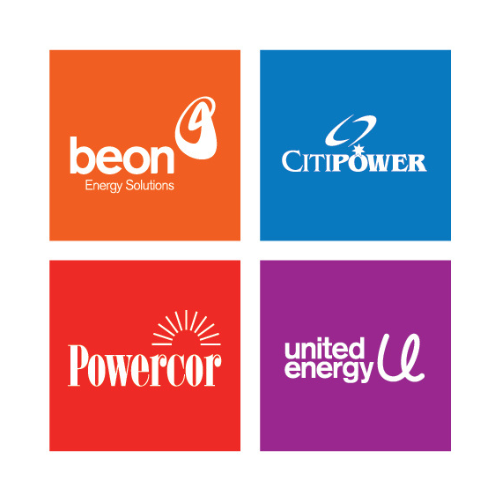From designing smart grids to solving real-world problems with tech and teamwork, women are making waves in the engineering world and smashing old-school stereotypes while they’re at it. In this blog, we dive into why more girls should absolutely consider joining the engineering industry, how it’s way more creative (and community-focused) than you might think, and how big-name employers like CitiPower, Powercor, and United Energy are helping to make it happen!
What are you waiting for? Let’s explore what makes women amazing engineers and how you can kickstart your very own engineering career journey today!
Why More Women Belong in Engineering
Promoting gender diversity is super important in any line of work. However, it’s extra crucial in fields that are usually seen as men’s jobs! Across the electricity and energy industry, this is a common occurrence (particularly with hands-on and in-the-field jobs, like someone who works on the power lines).
Over the past few years, CitiPower, Powercor and United Energy have done a lot of work to inspire the next generation of females to pursue a career in electrical engineering. In fact, they’ve been attending career expos, outlining their exciting graduate program, and visiting schools right across Victoria to discuss their apprenticeship and traineeship offerings. What’s more, they’re also providing pre-apprenticeship and engineering scholarships for women!
These efforts have resulted in a pretty impressive uptake at the recruitment phase, with higher numbers of women applying for roles within the business (and the percentage keeps rising!).
How Engineers Solve Real-World Problems
The term ‘engineering’ is extremely broad, which can make it a bit tricky to fully understand. From software engineers to electrical engineers, CitiPower, Powercor, and United Energy have many roles that fall under the engineering bracket.
A software engineer might help develop critical AI systems to assist the company’s inspection of power lines and the proximity of vegetation to these assets, saving many hours of work. On the other hand, electrical engineers are required to solve some very tricky problems that come with the energy transition (from coal to renewables), such as designing an appropriate underground network that connects to community batteries in a new housing estate.
Having a range of ideas and perspectives on how to combat a problem is crucial in the fast-changing energy industry. As the customer base and their requests diversify, so does the need for having differing minds within the business.
The Importance of Female Representation Within Engineering
Having female engineers represented in their respective industries allows young women to realise they can build their dream careers, regardless of how male-dominated an industry may seem.
When engaging with young people entering the workforce or looking for a career change, CitiPower, Powercor, and United Energy ensure that female representation is front and centre. For example, when schools are attended to promote the business (particularly in the regional areas), a female apprentice or engineering/IT graduate will often come and speak or be part of a panel.
Often, it appears that for the male students, having a male or a female speak to them does not make much of a difference. But for young females, being able to visualise themselves in a role that another female has done, and speaks highly of, makes a lasting impact!
What Makes Women Great Engineers (Especially in the Energy Industry)
Want to know why more women should pursue exciting careers in STEM? To answer this important question, we sat down with Keziah Cook, a first-year Electrical Engineering Graduate!
What strengths do women often bring to engineering teams (like communication, collaboration, or creativity)?
“Women bring a lot to the table in engineering, especially in areas that have mostly been made up of males in the past. Everyone’s different, but a lot of women are really strong when it comes to things like communicating and working as a team, which is super important in engineering and design.
“Having a mix of different people on a team helps bring in new ideas. Women often think about how their work will affect all kinds of people, not just the obvious users, which makes the final product better for everyone.
“Also, since engineering is still a field where women are sometimes underrepresented, many of them develop serious determination and grit. They’re also open to hearing different opinions, which helps create a positive, creative vibe on the team – and that’s exactly what today’s engineering world needs.”
How are these strengths used in real roles at companies like CitiPower, Powercor and United Energy?
“CitiPower, Powercor, and United Energy look for all kinds of strengths in their engineers because they want their teams to be diverse and inclusive. They really value teamwork and being able to see things from different points of view – that’s how people work best together. Being able to communicate clearly and confidently is also a big deal since engineers need to share their ideas and work with lots of different people throughout a project.
“The company’s values actually match really well with the strengths that many women bring to the table, like working collectively to “succeed together” and always thinking about how their work affects customers and the community. Women who’ve made it through school and uni in fields where they might not always be taken seriously often develop a lot of resilience and determination, which lines up with the company’s goal to “be the best you can be.”
“With the energy industry changing so fast, engineers need to be flexible and think ahead to keep things running smoothly and sustainably. These kinds of forward-thinking, adaptable skills are more important than ever, and women bring a lot of that to the table.”
How can students start building these skills while still in school—even outside of maths and science classes?
“A lot of girls in STEM classes don’t always come across as super confident, especially compared to some of the louder males, and because of that, they can sometimes get overlooked in group work or class conversations. But confidence is something you can totally build! Little things like speaking up more, volunteering to lead part of a project, or just sharing your ideas can really help. It might feel weird at first (especially if you’re used to letting others take the lead!), but the more you practice, the easier it gets.
“You don’t have to stick to school either. Getting involved in stuff like clubs, volunteering, or team sports is awesome for building confidence. You’ll pick up skills like communication, problem-solving, and working through disagreements. If you want to challenge yourself a bit more, coaching or taking on leadership roles in activities is a great way to get better at organising things and leading a team.
“Also, a fun tip: most engineers aren’t known for being amazing public speakers. So, if you work on your presentation skills in other classes, like when you give a speech or do a group project, it’ll absolutely help later on – being able to explain your ideas clearly is a huge plus in the real world.”

Where a Career in Engineering Can Take You
We caught up with Sneha Thomas, an experienced Customer Planning & Power Quality Engineer, to dive deeper into the exciting career opportunities for women in the engineering space.
What are some exciting engineering projects that women are leading today?
“Female engineers are leading some seriously cool projects that are shaping the future of tech, sustainability, and how we live. In electricity and energy planning, women are playing a huge role in building the energy systems we’ll likely rely on in the future.
“They’re working on projects that update the power grid, bring in renewable energy like solar and wind, and make sure the system stays reliable even as it gets more complicated. From designing smart grids that can adjust on the fly to predicting energy needs and making the grid tougher against problems, women are pushing innovation at every level.
“They’re also leading the way in adding battery storage and electric cars to the mix, creating microgrids for remote areas, and using digital tools and data to make everything run better. Plus, female engineers are helping roll out projects that encourage cleaner energy use and help customers switch to electricity in smarter ways.
“It’s also worth noting that these projects don’t just involve the technical stuff. They’re super important for creating a cleaner, greener future. For anyone graduating and thinking about a career in energy, now’s an awesome time to jump in. Different ideas and backgrounds are needed now more than ever to solve some of the biggest energy problems out there, and women engineers are right at the heart of it!”
How does a career in engineering align with personal goals and values?
“Engineering is an awesome way to take what you care about and actually make a difference in the real world. Whether you love coming up with new ideas, care about protecting the planet, want to help people, or just like solving tricky problems, engineering lets you do all that.
“If you want to make a positive impact, engineering involves working on stuff that helps people, like clean energy, cool tech everyone can use, or building things that make communities better. Not to mention you’ll have the opportunity to keep learning and trying new things because we are in a transitional period of engineering right now and things will continue to change.
“Engineering is also about being honest, working as a team, and sticking with it even when things get hard. It’s about thinking carefully, owning your actions, and teaming up with all kinds of people to solve big challenges. So, engineering can be viewed as a way of seeing the world and making it better. It gives you the chance to shape the future based on what matters most to you.”
How much can women earn in engineering—and how does it compare to other career options?
“Women in engineering can earn competitive salaries that often exceed those in many other fields, even at the entry-level. Entry-level positions in engineering typically offer higher-than-average pay compared to other industries – at our company, the rate for electrical engineers is even higher, given the unique nature of the role. If you look into recent industry data, the average starting salary for engineering graduates in many countries ranks among the highest across all disciplines. As women gain experience and move into senior or specialised roles, your earning potential increases significantly.
“Admittedly, the gender pay gap still exists in many sectors, but engineering has definitely made some meaningful strides in closing that gap, especially in organisations like ours, which actively promote diversity and inclusion.
“I would highly recommend a career in engineering because it offers strong financial security, long-term earning potential, and a wealth of opportunities to grow, both professionally and personally.”
Why is it important for women to see themselves in leadership roles in STEM?
“Representation matters, especially in STEM. When women see other women in leadership roles, it truly sends a powerful message. CitiPower, Powercor and United Energy runs multiple programs to ensure women in more junior roles have constant opportunities to connect with those in leadership positions, such as the female mentoring program.
“Leadership visibility breaks down stereotypes and challenges outdated norms about who can do well in your typical maths/science areas. It not only inspires the next generation of women to pursue and stay in STEM careers but also helps create more inclusive, innovative, and effective teams. Diverse leadership brings different perspectives to the table, leading to better decision-making, broader problem-solving, and more equitable outcomes.
“Seeing women in STEM leadership roles has a powerful ripple effect. There are women at the company who have progressed from junior roles to senior roles in the several years they have been with the business, often lifting other women up around them. Seeing this definitely encourages others to aim higher and demonstrates that it is feasible, realistic and very much possible. It also shows that leadership doesn’t look just one way. Rather, success can be shaped by different styles, voices, and experiences, and that diversity is exactly what drives progress.
“I believe that when women lead the way in STEM, they’re not just opening doors for themselves, but they hold them open for others.”
Kickstart Your Electrical Engineering Journey Today!
The energy industry is changing fast, and everyone’s brainpower is needed to build a smarter, greener, and more inclusive future. Whether you’re into problem-solving, teamwork, or making a real difference in your community, engineering could be your perfect match. So, if you’ve ever thought, “Could I do that?” the answer is 100% yes.
Ready to explore your future in engineering? Launch your career with CitiPower, Powercor, and United Energy today!




